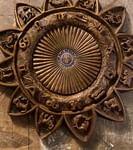
Chiseling is approximately characterized by the structure up of dirt, as opposed to the deduction. This is a profoundly expressive method of working and at its most fundamental depends exclusively on the hands as devices. Custom Molds The term is utilized to characterize a tremendous working reach, from unpredictable and cozy cycles to an entire body insight. Figures in dirt shift enormously in scale and style: from dolls carefully demonstrated with the thumb and pointer in the palm of the craftsman's hand to energetic works created by heaving wet earth at a structure to develop structure, and everything in the middle. Chiseling with mud can be quick and prompt, fit to enormous scope pieces, and open-air works. It can likewise be little and expressive, conjuring up pictures of the principal figures of old occasions, whose highlights were extracted from wet mud to look like creatures and human structures. Chiseling uses the pliancy of mud.
Earth Sculpting tips
Any dirt can be etched. Grogged dirt is better at supporting itself and ideal for enormous figures, while better muds are useful for limited scope work. It merits trying different things with various muds, as chiseling is frequently an exceptionally material encounter; the actual characteristics of one mud may suit you more than those of another. Chiseling with mud regularly includes supporting the structure as it is made. Contingent upon the scale, structure, and organization of the piece, there are different strategies for doing this. Limited scope pieces can be upheld with scrunched up paper, bits of the wipe, or sticks with dirt applied to each end. Building straightforwardly onto the furnace rack, utilizing oven props to help extremities, makes moving the piece to the oven simpler. Bigger parts can be upheld by developing inner dividers and structures as you assemble.
A metal structure or armature is regularly used to help huge, complex articles. Armature wire is usually utilized, in blend with chicken wire and wooden swaggers. Craftsmen build up their techniques relying upon the necessities of their work.
Be mindful that any non-artistic materials that go into the oven as a component of your clay works, inside backings or different added substances, and which consume with smoldering heat during the terminating, may bring about hurtful vapor. Sufficient ventilation is indispensable for all firings and in a perfect world, extraction fans ought to be fitted.
Two Clay Sculpture Techniques
A few wires, on the rear of the creature, additionally have circles appended which will reach out through the mud divider and permit the creature to be hung in the oven, forestalling drooping at top temperature. The armature is joined to wooden backings and containers of paper clay are added to shape legs. Fine sheets of paper clay are projected from slip on a mortar bat and applied to the armature. When the whole creation has been covered, the second layer of porcelain paper clay is projected and applied over the first. The vast majority of the displaying of highlights is finished at this stage. Hooves, tails, and eyes are added. Roughly ten huge sheets of designed paper clay are made to frame the last surface of the creature. The examples are made by printing, drawing, and scratching into shaded slips on a mortar bat. These bits of pattered paper clay are then collaged onto the outside of the creature.
For the craftsman, the experience of making is particularly tangible. 'The making cycle is rhythmical and pleasurable, the vibe of the delicate dirt yielding. The completed models contain a feeling of energy and natural development. The delicate quality of the earth during the shaping cycle stays obvious in the completed structure, the smooth movement of the dirt right now of its creation caught and contained in the last inflexible structure.' Taylor utilizes rugged mud. Its pliability is ideal for this freestyle cycle and its solidarity empowers her to deliver huge scope work.
Also read about:
Support Tips to Make Your Fence Last Longer
Much Needed Essentials You Should Keep In Your House
Football The divider can make it harder to save free kicks new examination








